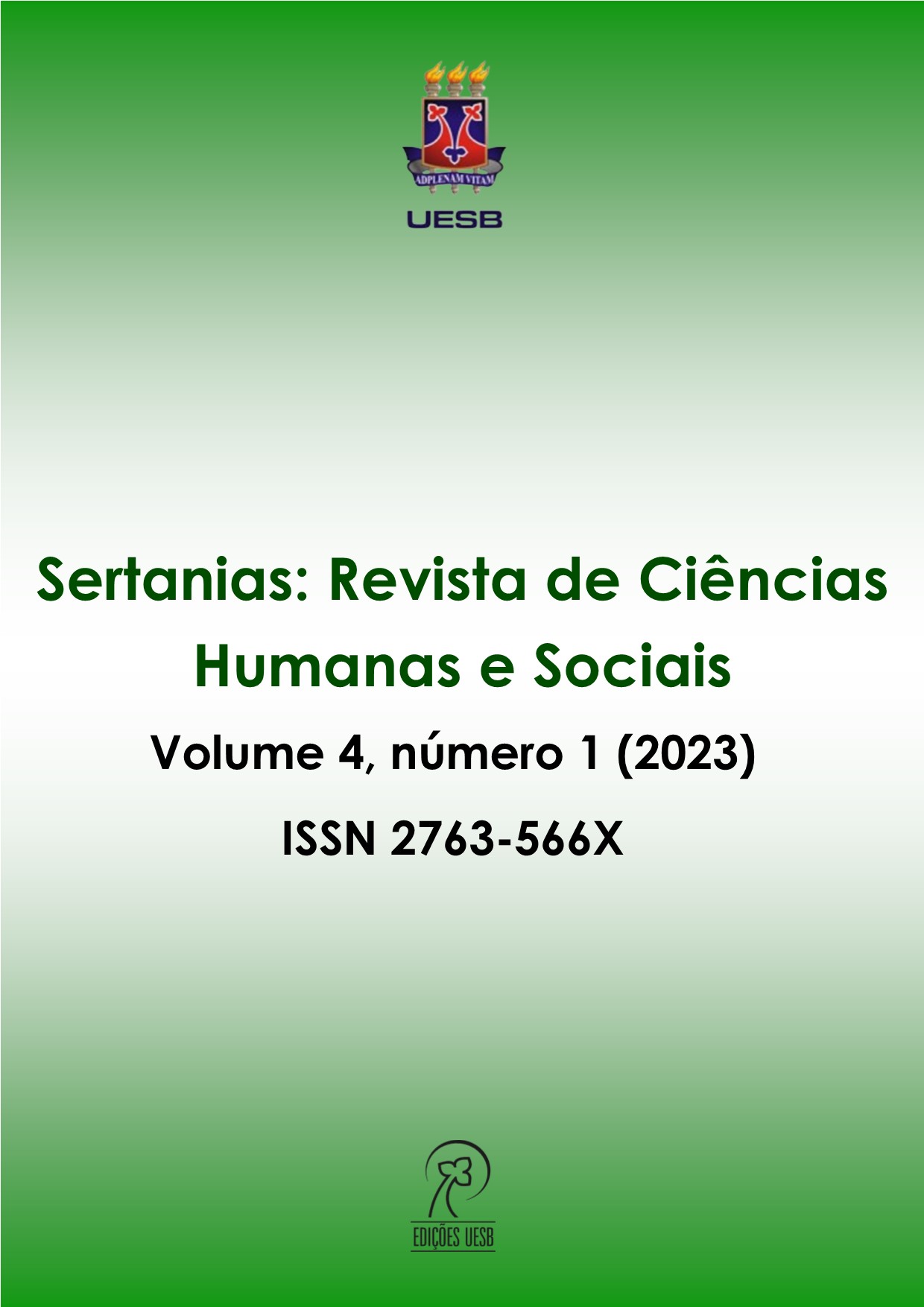Orality as a power in the literacy process: experience report with children in the quilombola campo
DOI:
https://doi.org/10.22481/sertanias.v4i1.12286Keywords:
Literacy, Children, QuilombolaAbstract
Abstract: In this article, part of the action developed in the project will be presented under the title “Orality as a power in the literacy process of children in the quilombola countryside”, a teaching and extension project of the Núcleo de Educação Popular Paulo Freire (NEP), managed by the subgroup - Popular Education Group with Quilombola Students (GEPEQ), from the State University of Pará (UEPA), which aimed to collaborate with the literacy process of Quilombola students in the 3rd year of elementary school, at the Municipal School of Early Childhood Education and Fundamental Quilombola (EMEIFQ), located in the quilombola community of Vila União/Campina, in Salvaterra Ilha de Marajó/PA. The methodological contributions used were the qualitative approach and descriptive analysis of the meetings that took place in the project. To this end, supported by Alves and Marques (2021), Rufino (2014), Freire (1988), Arroyo (2014) among others who contribute to the analysis of this article. It was verified that the project that made use of orality and ludic activities, contribute to the learning, assimilation of the students and are builders of moral and social principles, as well as, such activities collaborate in the teaching process, being aggregator in learning.
Downloads
References
ALVES, Francisca Ivoneide Benicio Malaquias; MARQUES, Luana Thais dos Anjos. A Importância da Oralidade no Processo de Alfabetização com Enfoque na Contação de História. Revista de Psicologia (online), 2021. Disponível em: https://idonline.emnuvens.com.br/id/article/view/2089 . Acesso em: 22 fev. 2023
ARROYO, Miguel G. Outros Sujeitos, Outras Pedagogias. 2 ed. Petrópolis, RJ: Vozes, 2014.
BRASIL, Diretrizes Curriculares Nacional para educação escolar quilombola. RESOLUÇÃO N 8, 20 de novembro de 2012.Brasília: Conselho Nacional de Educação- Câmara de Educação Básica (CNE/CEB).
BRASIL, Parâmetros Curriculares Nacionais (PCNs). Introdução: Ensino Fundamental. Brasília: MEC/SEF,1988.
BORRÉ, Franciele Novaczyk Kilpinski; CELESTINO, Suelen Suckel; MATTOS, Patrícia Nascimento. Processo de alfabetização: um relato sobre práticas pedagógicas na educação infantil. X Seminário Internacional de Alfabetização (resumo expandido), 2017. Disponível em: https://publicacoeseventos.unijui.edu.br . Acesso em: 22 fev. 2023
FREIRE, Paulo. A importância do ato de ler, em três artigos que se completam. 22 ed. São Paulo: Cortez, 1988.
HAETINGER, Max. Criatividade: criando arte e comportamento. Porto Alegre: Instituto Criar, 1998.
HAMPATÉ BÂ, Hamadou. A tradição viva, em História Geral da África I. Metodologia e pré-história da África. Organizado por Joseph Ki-Zerbo. São Paulo, Ed. Ática/UNESCO, 1980.
MOTA NETO, João Colares da. Educação no cotidiano do terreiro: saberes e práticas culturais do tambor de Mina na Amazônia. 2008. 196 f. Dissertação (Mestrado em Educação) – Centro de Ciências Sociais e Educação, Universidade do Estado do Pará, Belém, 2008.
OLIVEIRA, Ivanilde Apoluceno de. Cartografia dos saberes: estudos culturais e educacionais na Amazônia. In: DOURADO, Cleonice Reis Souza; SANTOS, Waldiza Lima Salgado. (Org.). Diálogos entre a Epistemologia e a Educação. Belém: CCSE/UEPA, 2013.
RUFINO, Terezinha Clementino da Silva. O Lúdico na sala de aula em séries iniciais do ensino fundamental. Monografia (Especialização) - Universidade Estadual da Paraíba, Centro de Humanidades, 2014.
Downloads
Published
How to Cite
Issue
Section
License
Copyright (c) 2023 Sertanias: Revista de Ciências Humanas e Sociais

This work is licensed under a Creative Commons Attribution 4.0 International License.






